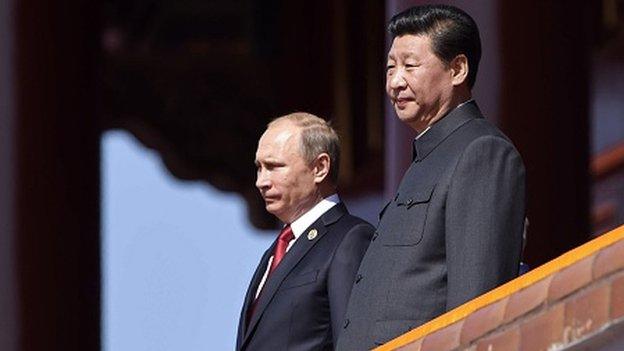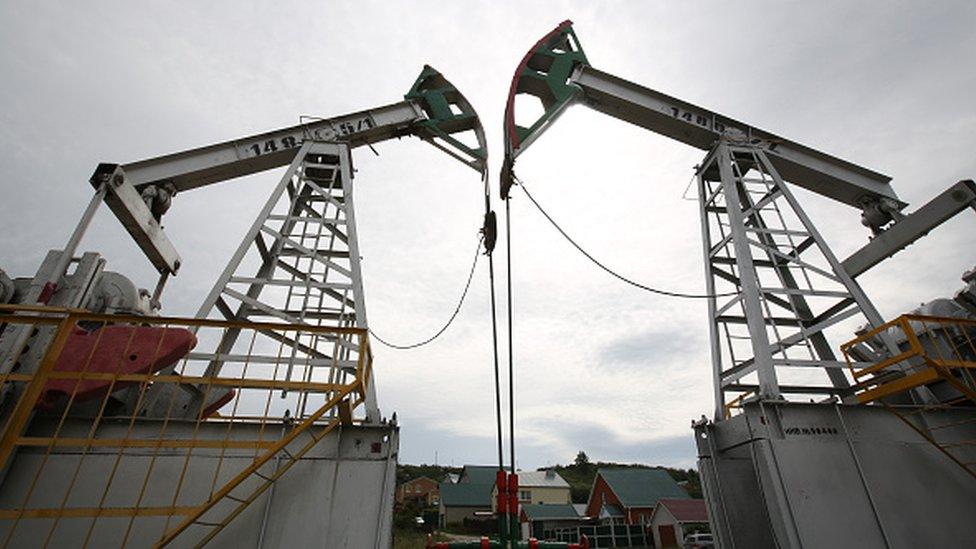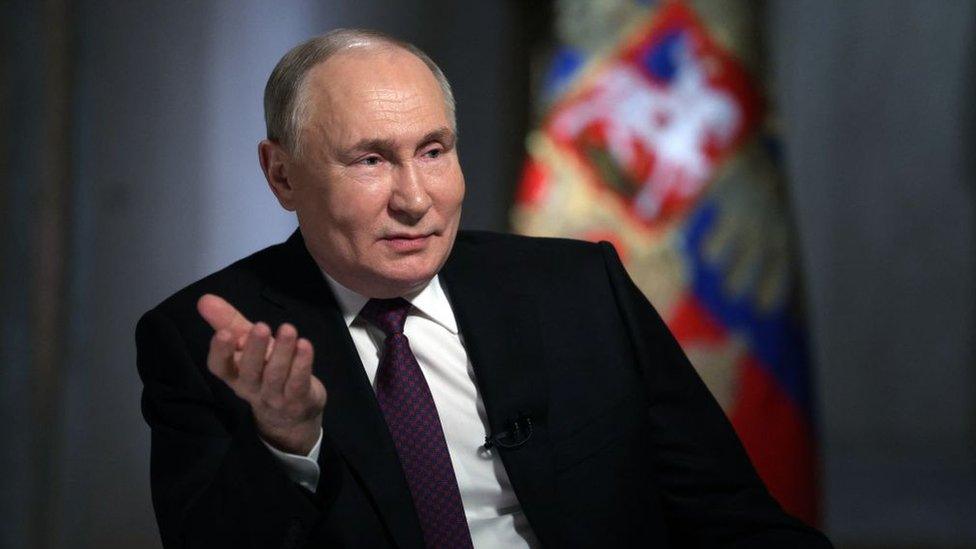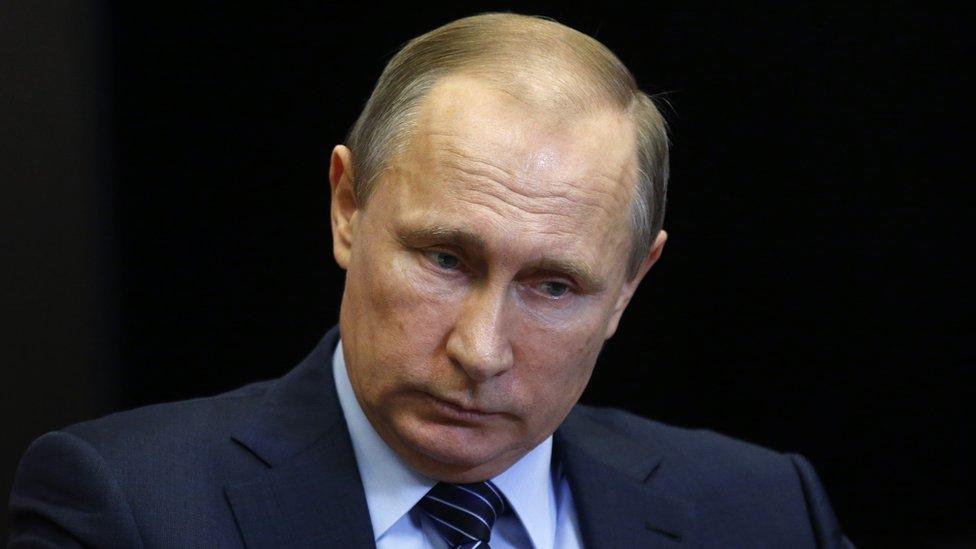Is Russia still a key world power?
- Published

Russia has been eclipsed as a world power by China
Whether Russia, one of 15 successor states to the USSR, which broke up in 1991, is still a genuine world power in 2015 is open to question.
It remains the world's largest country and the largest oil producer
It retains its permanent seat on the UN Security Council (one among five)
Its nuclear arsenal (in Cold War times one of five countries, but now one of nine) has been progressively modernised
Sustained increases in defence spending have brought it close to its goal of escalation dominance in local and regional war
But the economic base for these capabilities is steadily declining.
Russia's economy is the 10th largest in the world, producing little of value beyond hydrocarbons.
Corruption and rent-seeking extract an enormous economic toll.
It remains burdened with Soviet era infrastructure, and its ability to meet the educational and medical needs of its population is rapidly declining.
Whatever one's view, two further points for and against Russia's global standing are undeniable:
Russia regards itself as a great power - it is not in question anywhere inside the country
China has long since eclipsed Russia as the world's number two power behind the US
Yet for all Russia's pretence about a rebalancing of priorities towards Asia, since the fallout over Ukraine, it still measures itself against the West, and America in particular.
Distinct Eurasian niche
Regardless of hypothetical rankings or real-world measurements, Russia has carved out a niche for itself as a distinct Eurasian pole in world politics, allied to neither Europe nor Asia but seeking influence there and beyond.
Its membership of the Brics (Brazil, Russia, India, China and South Africa) group of rising powers suggests an acknowledgement that Russia has not quite arrived (there is no contradiction for Russia between this and pre-existing great power status) but also that is it is civilisationally distinct from Europe.

Oil is hugely important to the Russian economy
Certainly, there is no current desire to be part of most prominent Western-led organisations such as the European Union.
Indeed, Russia has striven to come up with its own alternatives over the years, the latest of which, a Eurasian Union, is designed precisely as a counterweight but free of the burden of Western norms and values.
Whether it will have a longer life than its antecedents, considering Russia's failing economic fortunes and other countries' evident reluctance to be joined too closely, remains to be seen.
Russia's mission beyond the quest for influence is hard to discern.
It is the world's most ostentatious foe of democracy promotion.
But its foreign aid is minimal (especially beyond the other former Soviet states - where its purpose is often regarded as a double-edged sword), and its contribution to UN-led peacekeeping has withered since the 1990s.

World's largest economies by gross domestic product (GDP) (in millions of US dollars, 2014):
US: 17,419,000
China: 10,360,105
Japan: 4,601,461
Germany: 3,852,556
UK: 2,941,886
France: 2,829,192
Brazil: 2,346,118
Italy: 2,144,338
India: 2,066,902
Russian Federation: 1,860,598

Until the recent campaign in Syria, Russia had talked of itself as a global power, but behaved like a regional power.
Russia's greatest challenge is to preserve its global importance while most of the relevant indicators are dropping and its allies are few and far between (dictators, largely).
For some, Russia's natural and historical pre-eminence mean it will always be a key player.
Others fear Russia may compensate for weakness with risky foreign adventurism.
Indeed, for many, it is already doing just that.
James Nixey is head of the Russia and Eurasia Programme at Chatham House, external.
- Published17 March 2024

- Published27 November 2015

- Published26 October 2015
- Published27 March 2015
